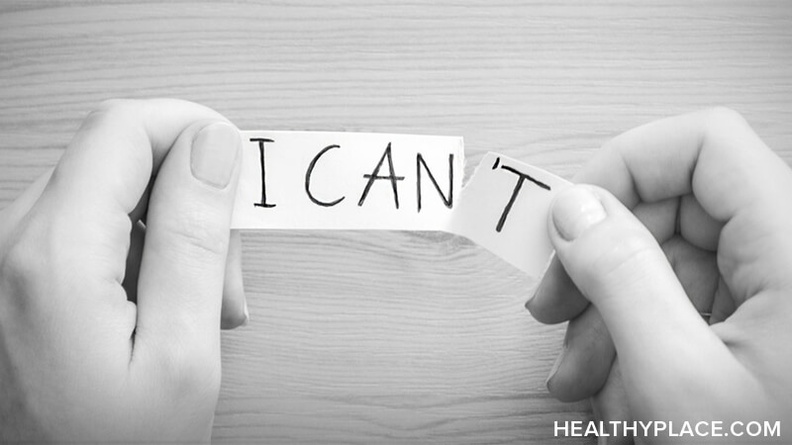Depression and low self-esteem can be closely connected. When you live with low self-esteem for a long time, you may come to believe that you are inherently worthless, and this deep sense of worthlessness is a common symptom of depression. Conversely, if you’ve lived with depression for a long time, your self-esteem can be impacted. Perhaps when the motivation and energy are drained out of you, you lose confidence in your abilities and value.
Of course, the relationship between depression and low self-esteem is complex and highly individual. They can occur together and disappear together; or they can reinforce each other by means of a negative feedback loop, with low self-esteem leading to a feeling of hopelessness, which may result in low motivation, which in turn can foster more feelings of low self-worth.
If you suffer from low self-esteem, an effective way to help you recognize your inherent value is to take on more responsibility. When I went through depressive episodes in which my self-esteem plummeted, I found that trying to be more responsible – in whatever way possible – was therapeutic.
Volunteer
When I was going through a rough time in my life, with my self-esteem at rock bottom, I was willing to try anything to get better. I remember reading about how the psychiatrist Viktor Frankl recommended voluntary work to his patients with suffering from depression. This was based on his underlying philosophy that humans find fulfillment in meaningful activities, and without meaning in one’s life, mental health issues arise.
Since I was attracted to his philosophy, I decided to put it into practice. I went to go volunteer at a soup kitchen. Despite lacking the social energy – and the confidence – to be around new people and put on the happy volunteer persona I thought I had to adopt, I forced myself to go. I didn’t make it every week, but when I did go, my mood improved, as did my self-esteem.
There wasn’t much responsibility involved. It was a pretty relaxed environment, without much ‘work’ to do, besides occasionally serving food and doing a bit of cleaning after dinner was finished. But simply having a task to do, and making a small difference in the process, was enough to boost my self-esteem.
Look after a pet
Having a pet to look after is another way to guarantee some more responsibility in your life. Knowing that you are able to take care of another can help you realize that you are not as useless as you’ve convinced yourself that you are.
A study published in Journal of Personality and Social Psychology revealed that people with pets reported higher levels of self-esteem, belonging and meaning than people without pets. The British Psychological Society published a large review of studies, which also showed that pets (dogs especially) boost self-esteem and feelings of autonomy and competence.
However, pets raise one’s self-esteem in ways that go beyond the fact that you’re responsible for them. Rebecca A. Johnson, director of the Research Center for Human-Animal Interaction at the University of Missouri College of Veterinary Medicine, says:
Pets are completely non-judgmental, don’t have an agenda, take you at face value, and they don’t care what you look like or how you behave—they love unconditionally, and that boots self-esteem.
There are so many ways to take on more responsibility. Think about what you are passionate about or interested in, a new skill you’d like to learn, or somewhere you’d like to travel to. Attending classes every week or navigating a new place on your own can be a powerful way to raise your confidence in your abilities.
Source: Self Confidence



Leave A Comment
You must be logged in to post a comment.